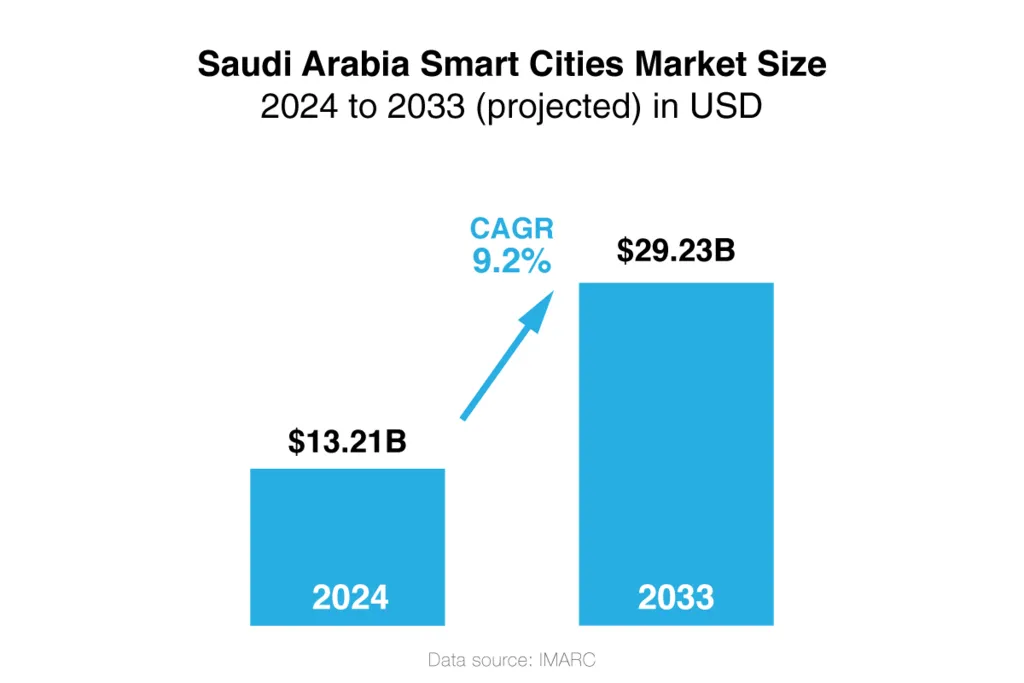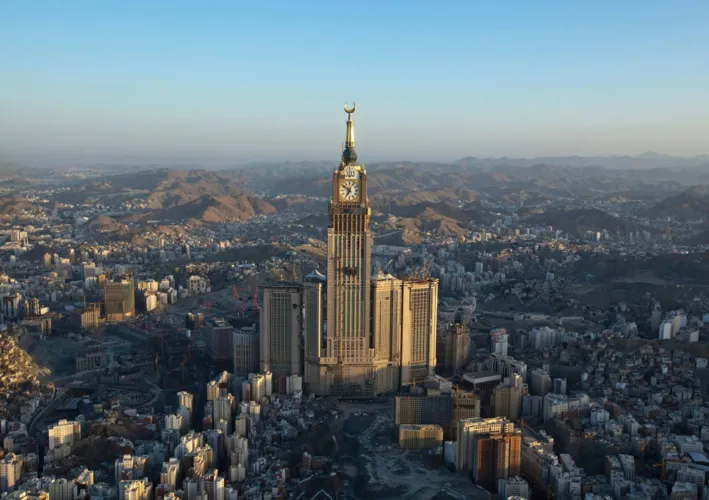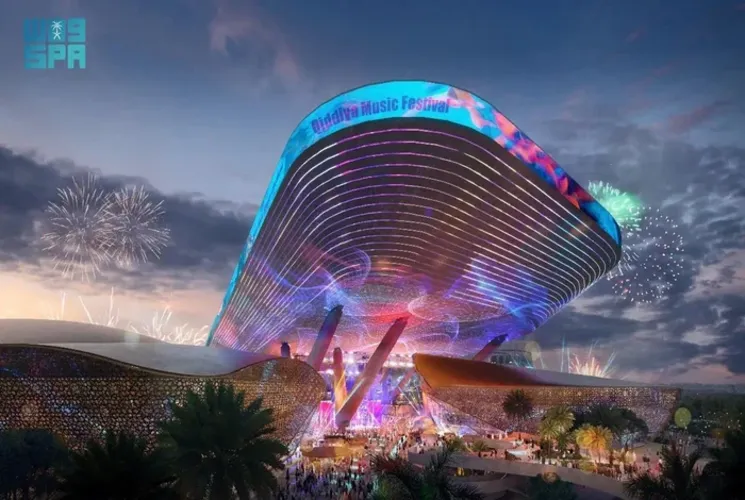$29.2 Billion by 2033: Saudi Smart Cities Adoption Accelerates
Saudi Arabia is rewriting the blueprint for urban living. With its smart cities market expected to more than double from USD 13.2 billion in 2024 to USD 29.2 billion by 2033 at a steady 9.2% CAGR. The Kingdom is leaning into a future shaped by innovation and necessity. Vision 2030 serves as a promise to transform how people move, connect, and thrive in increasingly crowded cities. As urban life grows more complex, the call for intelligent infrastructure that can ease congestion, cut pollution, and stretch resources further is no longer optional, it’s urgent. Saudi smart cities adoption is becoming the heartbeat of this transformation.

IoT Market Hits $9.5 Billion: Backbone of Saudi Smart Cities Adoption
The Internet of Things (IoT) is the digital nervous system of Saudi smart cities adoption. With the national IoT market reaching USD 9.5 billion in 2024, connected sensors and devices are revolutionizing how cities operate. From traffic flow optimization and energy management to waste collection and public safety, IoT enables real-time data collection and responsive decision-making. Smart traffic systems reduce gridlock, while IoT-enabled utilities fine-tune energy and water usage. Even waste bins are getting smarter, with sensors guiding efficient collection routes.
48.6% of Saudis Online 7+ Hours Daily: Connectivity Fuels Adoption
High internet penetration is a critical enabler of Saudi smart cities adoption. Nearly half of the population spends over seven hours online daily, creating fertile ground for cloud-based platforms and mobile apps that deliver smart services. Citizens can access transportation updates, pay utilities, and receive safety alerts—all from their phones. This digital engagement fosters a two-way relationship between residents and city systems, allowing for feedback, issue reporting, and participatory governance. Seamless connectivity ensures that smart infrastructure functions cohesively across sectors.
Smart Transportation Leads: Parking Market Grew 19% CAGR (2019–2024)
Transportation is a cornerstone of Saudi smart cities adoption, with innovations targeting congestion, safety, and mobility. AI-powered traffic signals, real-time monitoring, and route optimization are reducing travel times and emissions. Public transit systems benefit from digital tools that track usage and provide live updates. Integrated mobility apps combine buses, metros, and ride-sharing into unified travel experiences. Notably, the smart parking segment expanded at a double-digit CAGR exceeding 19% from 2019 to 2024, reflecting strong demand for efficient urban navigation.
Regional Growth and Strategic Projects: Eastern Region Gains Momentum
Smart city development is unfolding across Saudi Arabia’s regions, with notable momentum in the Eastern Region. A USD 1.6 billion smart city initiative in Khobar exemplifies the scale of investment. Meanwhile, cities like Riyadh, Jeddah, and Madinah are being digitally twinned through a five-year partnership with Naver, enabling precise 3D modeling and real-time simulations. These digital twins enhance emergency preparedness, infrastructure oversight, and urban planning. AlUla’s inclusion in the IMD World Smart Cities Index 2025 further signals the Kingdom’s rising global profile.
Subscription Models and Satellite Tech: New Frontiers in Saudi Smart Cities Adoption
Innovative business models and technologies are reshaping Saudi smart cities adoption. Orange Business introduced subscription-based smart city services, potentially reducing costs by up to 60% and accelerating implementation by 80%. Meanwhile, satellite connectivity is being deployed through partnerships like ATSS and Iridium Communications, enhancing traffic control, environmental monitoring, and public safety. These developments reflect a shift toward scalable, flexible solutions that can adapt to diverse urban needs.
Outlook to 2033: Saudi Smart Cities Adoption as a Catalyst for Urban Resilience
As Saudi Arabia continues its smart city evolution, the focus remains on creating responsive, sustainable, and citizen-centric urban environments. With robust investment, rising digital engagement, and a clear strategic vision, Saudi smart cities adoption is not just a trend—it’s a long-term transformation. By 2033, the Kingdom’s urban landscape will be defined by intelligent systems that elevate quality of life, drive economic growth, and set new benchmarks for innovation in the region.
Also Read: Digital Transformation in Saudi Arabia: Emerging Opportunities in the Services Sector







